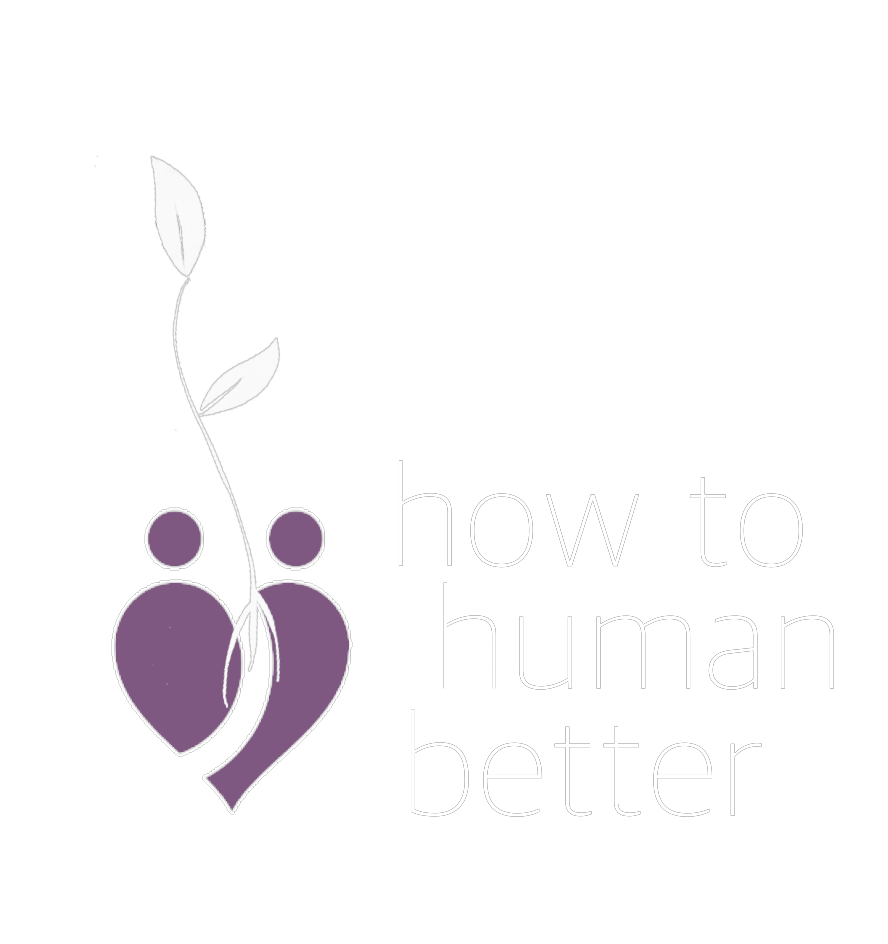Intentional Humanism: a lifelong commitment to becoming a better human being. A choice to use your words intentionally by being fully present in the experience of now, so that you can continuously figure out how to become the best human being you can be. A commitment to radical authenticity.
You were born a spirit.
You cannot become "more spiritual."
You can only become more free.
[unknown]
Consciously Constructed Relationships
In order to learn, grow, and experience happiness in our lives rather than frantically & endlessly pursue, we need each other's help. We rely on our partner(s), our friends, our colleagues, and our community at large. Through our relationships and resonance with each other, we amplify the higher power that we each carry inside or pray to in times of need.
The truth is, we have some degree of relationship with every human being we encounter, from the cashier at the grocery store to the woman in your office who chats with you about the weather every morning. Some relationships are brief and transactional, some are collegiate and socially-courteous, while others become the defining elements of our lives: family relations, business partnerships, close friendships, sexual connections and romantic relationships.
If we are very lucky, we might meet someone with whom we choose to build a lifelong partnership: a romantic, economic, familial, and/or sexual relationship that will be present in every waking moment and a part of every decision that we make.
But even when we find that magic with someone, it doesn’t mean our other relationships disappear. Outside our partnerships and marriages, we continue to have relationships with other human beings that bring us happiness. Our friends and relatives, and in some cases other partners, fulfill us in ways that our life partner can't or won't.
A truly happy lifelong partnership recognizes this truth, and is consciously constructed to make sure that both people have all their needs met in the context of the community that they share.
It is one that makes room for friendships and new connections which enrich the lives of both individuals so that they can continuously grow in their ability to love each other better. It is one that prioritizes communication about each other's real needs and feelings above fairytale dreams and unspoken expectations. It is one that prioritizes radical authenticity and both people continuously expressing their needs and desires in a way that's free of judgment or subtext.
Love Without Attachment
The kind of proactive communication it takes to overcome false expectation-setting isn't easy. It requires commitment, practice, and a willingness to embrace the idea of loving without attachment. As the Buddha once said:
“You only lose what you cling to.”
We want to love, honor, and cherish those we choose to have relationship with. But we should also aspire to do so with a sense of independence and clarity that allows us to stay grounded in our sense of self. We don't need to cling to each other to achieve happiness and self-fulfillment, because we are whole and enough on our own.
Our wholeness & happiness can be enhanced by our bonds with each other, but it will be degraded the moment we start to blur the line between a healthy bond and an attachment rooted in needing someone else. Attachment in love may at first appear romantic and feel very desirable, but it ultimately breeds co-dependency. We are our best selves in a relationship when we know how to be our best self outside of it, too.
Codependence: “I can’t live without you!”
Interdependence:
“I want to be able to rely on you and make sure we both get all our needs met, between this relationship and within the context of the greater community.”
Independence: “I don’t need anybody but myself.”
Whatever your gender or romantic orientation is, the possibilities abound when you make a decision to consciously construct every relationship in your life: to proactively think about and then directly communicate your expectations from each of the people with whom you share time and space.
This opens the possibility for ethical non-monogamy and polyamory, but having multiple partners isn't the point: the point is love without attachment. The point is radical authenticity. The point is, are you loving your partner in the best way possible, and are you willing to constantly ask yourself that question?
